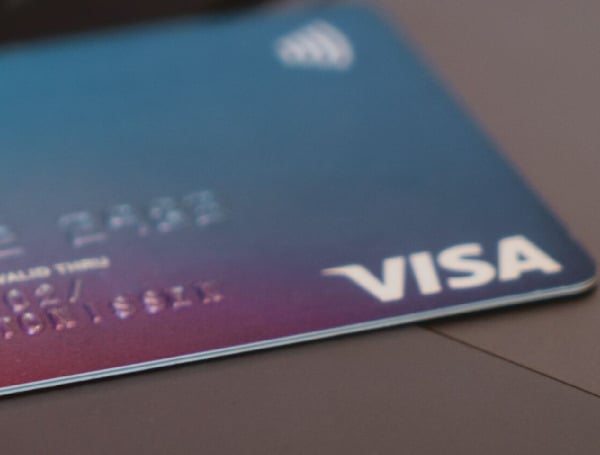The Credit Card Competition Act (CCCA), currently under scrutiny in Congress, has been presented as a means to lower consumer costs by fostering competition among credit card networks. While proponents of the bill argue that it will create a fairer system for consumers, a deeper examination reveals that it could have severe unintended consequences, particularly for Florida’s economy. Florida’s economy, which relies heavily on tourism, small businesses, and financial services, is at risk of facing substantial challenges if this legislation moves forward.
Florida’s Congressional delegation has expressed concern about the bill’s potential negative impacts on consumers, businesses, and the state’s financial institutions. Rep. Mario Diaz-Balart (R-FL), for example, has voiced significant reservations about the bill, emphasizing that it would disproportionately harm small businesses and lead to increased costs for consumers. “The CCCA is a direct attack on Florida’s economy, specifically its small businesses,” he said. Diaz-Balart’s concerns echo those of many local business owners who depend on the stability and reliability of established credit card networks to process payments securely and efficiently.
READ: Op-Ed: Credit Card Competition Act Is Bad For Florida
Florida, being a state that thrives on tourism, depends heavily on the seamless operation of payment systems. Tourists from around the world expect to use their credit cards without encountering barriers or delays. If the CCCA were to pass, it could force credit card companies to switch networks or change their processing systems in ways that increase transaction times or introduce new fees, disrupting a key part of Florida’s economy. Tourists, many of whom rely on credit card payments, may face additional costs or be forced to navigate unfamiliar and less reliable systems. This could undermine the state’s ability to maintain its status as a global tourist destination.
Small businesses in Florida, many of which are already operating on thin margins, would also feel the effects. The bill proposes allowing merchants to route credit card transactions through less secure, and potentially less efficient, networks. While this could lower transaction fees for merchants, it could also open the door to higher fraud risks and operational inefficiencies. Rep. Vern Buchanan (R-FL) has pointed out that “small businesses in Florida could be the first to suffer from a sudden increase in fraud and fees, which would only add to the burden already placed on them by inflation and supply chain disruptions.”
Additionally, the bill’s approach could undermine Florida’s financial sector, which has been growing rapidly in recent years. The state has seen an influx of financial technology firms, particularly in cities like Miami, which has become a hub for fintech innovation. The Credit Card Competition Act could dampen this growth by undermining the profit models of major financial institutions. Banks, particularly smaller regional banks, could face significant pressure as they would be required to adapt to the new regulations, potentially leading to higher operating costs or reduced services for consumers. In a state like Florida, where financial services play a key role in both the local and national economy, this would be a harmful step backward.
READ: US Treasury Secretary Scott Bessent Unveils Plan To Slash Regulations, Boost Economy
Furthermore, the bill’s provisions could drive up costs for consumers in unexpected ways. In an effort to balance the interests of merchants and networks, credit card companies may adjust by raising interest rates or adding new fees to cover the additional costs incurred from complying with the new rules. Rep. Brian Mast (R-FL) has raised concerns that, “While the intent behind the bill is to benefit consumers, it’s clear that it could lead to more costs being passed down to consumers in the form of higher interest rates and service fees.” In a state where many residents rely on credit cards as an essential part of their financial life, especially in the aftermath of the COVID-19 pandemic, this increase in fees could exacerbate economic difficulties for families already struggling with inflation.
While the Credit Card Competition Act may seem like a good idea on paper, its potential negative impacts on Florida’s economy cannot be ignored. Florida’s small businesses, financial institutions, and residents could all face higher costs, decreased security, and operational disruptions. Florida’s Congressional representatives, including Reps. Diaz-Balart, Buchanan, and Mast, have all raised alarms about the bill’s adverse effects.
Given the significant impact this bill could have on Florida’s economy, it is essential that Senators Rick Scott and Ashley Moody join their colleagues in the Florida delegation to voice strong opposition to the CCCA. The state’s economy depends on the stability of its financial systems and small businesses, and this legislation, if passed, could do irreparable damage. Lawmakers should reconsider this legislation in light of the potential economic harm it could cause to the state. The last thing Florida needs is a poorly thought-out law that undermines its economic resilience and harms the very consumers it aims to protect.
Jim Stanley of St. Petersburg, FL., is a payments professional with over 25 years of experience in the financial services industry.
Please make a small donation to the Tampa Free Press to help sustain independent journalism. Your contribution enables us to continue delivering high-quality, local, and national news coverage.
Connect with us: Follow the Tampa Free Press on Facebook and Twitter for breaking news and updates.
Sign up: Subscribe to our free newsletter for a curated selection of top stories delivered straight to your inbox.

